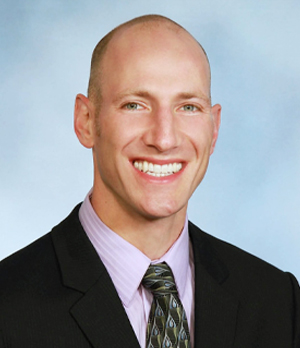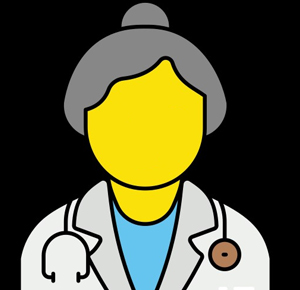Navigating the complexities of mood disorders can be daunting, but finding the right doctor makes all the difference.
In Salem, MA, a city known for its rich history and vast community, exceptional mental health professionals are dedicated to providing personalized care for those struggling with conditions like depression, bipolar disorder, and anxiety.
With a focus on evidence-based treatments, these specialists work tirelessly to enhance their patients’ quality of life.
Mood disorders affect millions, often impacting daily activities and relationships. Salem’s top doctors offer a blend of psychotherapy and medication management, tailoring their approach to each individual’s unique needs.
Their commitment to high standards of care and collaboration with other healthcare providers ensures comprehensive support for every patient.
Discovering the best mood disorder doctors in Salem means taking a crucial step toward recovery and improved mental well-being.
Top 5 Best Mood Disorders Doctors in Salem Ma
In Salem, MA, several healthcare professionals specialize in diagnosing and treating mood disorders, including depression, bipolar disorder, and anxiety.
Here are five highly regarded doctors specializing in mood disorders in Salem, Massachusetts:
1. Dr. Andrew Kwait, MD

- Location: Danvers, MA (near Salem)
- Specialties: Mood disorders, psychotic disorders
- Education: Weill Cornell Medical College
- Board Certification: Psychiatry
- Affiliations: North Shore Medical Center, Beverly Hospital
- Patient Rating: 4.8 (34 reviews)
- Care Approach: Patient-centered care with both in-person and telehealth options; collaborative treatment with other healthcare providers.
- Community Impact: Highly regarded for his extensive experience and comprehensive care in treating complex mood disorders.
2. Dr. Howard E. Abrams, MD

- Location: 100 Highland Ave, Salem, MA
- Specialties: Mood disorders, depression, anxiety, bipolar disorder
- Board Certification: Psychiatry
- Patient Rating: 3.8 (10 reviews)
- Care Approach: Personalized treatment plans that integrate therapeutic techniques with medication management.
- Community Impact: Known for his commitment to improving mental health outcomes in the Salem community.
3. Dr. Jefferson B. Prince, MD

- Location: 57 Highland Ave, Salem, MA
- Specialties: Mood disorders, depression, anxiety, bipolar disorder
- Board Certification: Psychiatry
- Patient Rating: 4.0 (4 reviews)
- Care Approach: Compassionate and individualized mental health care; combines psychotherapy with medication management.
- Community Impact: Recognized for enhancing treatment outcomes through access to a broad range of mental health resources.
4. Dr. Corey Meyer

- Location: 81 Highland Ave, Salem, MA
- Specialties: Mood disorders, depression, anxiety, bipolar disorder
- Affiliations: Mass General Brigham
- Patient Rating: 3.0 (3 reviews)
- Care Approach: Combines psychotherapy with medication management, offering personalized mental health support.
- Community Impact: Valued for his attentive care and collaboration with other medical professionals in Salem.
5. Doranne Whittredge

- Location: 100 Highland Ave Ste 204, Salem, MA
- Specialties: Mood disorders (social work)
- Education: Social Work (not a medical doctor)
- Patient Rating: 5.0 (client feedback)
- Care Approach: Focuses on assisting individuals with daily challenges associated with mood disorders through compassionate support.
- Community Impact: Highly respected for her empathetic care and dedication to mental health in Salem.
Symptoms of Mood Disorders Patients
Mood disorders encompass a range of conditions that significantly impact a person’s emotional state, thought patterns, and overall functioning. Common mood disorders include major depressive disorder, bipolar disorder, and persistent depressive disorder (dysthymia).
The symptoms can vary widely depending on the specific disorder and the individual, but some common symptoms include:
Depressive Symptoms
Individuals may experience a prolonged period of feeling sad, hopeless, or empty. This persistent sadness can affect their overall outlook on life and their ability to function normally.
Loss of Interest or Pleasure
Activities that were once enjoyable may no longer hold any interest or pleasure, a condition known as anhedonia. This loss can contribute to feelings of isolation and disconnection.
Changes in Appetite
This may include significant weight loss or gain due to changes in appetite. Individuals might either overeat as a way to cope or lose interest in food altogether.
Sleep Disturbances
People may experience insomnia (difficulty sleeping) or hypersomnia (excessive sleeping). These sleep issues can further exacerbate feelings of fatigue and hopelessness.
Fatigue or Loss of Energy
A persistent feeling of tiredness or lack of energy can occur, even after adequate rest. This fatigue can interfere with daily activities and responsibilities.
Feelings of Worthlessness or Guilt
Individuals may have excessive or inappropriate feelings of guilt or worthlessness. These feelings can lead to a negative self-image and exacerbate depressive symptoms.
Difficulty Concentrating
Trouble focusing, making decisions, or remembering things is common among individuals with mood disorders. This cognitive impairment can impact work and personal relationships.
Manic Symptoms
For those with bipolar disorder, elevated mood is a hallmark symptom. This may manifest as an exaggerated sense of euphoria or irritability, leading to impulsive decisions.
Increased Energy or Activity
An unusual increase in energy levels often leads to hyperactivity. Individuals may feel compelled to engage in multiple activities at once.
Thoughts of Death or Suicide
This includes recurring thoughts of death, suicidal ideation, or suicide attempts. Such thoughts are serious and require immediate professional attention.
Frequently Asked Questions
What Kind of Doctor Do I See for Mood Problems?
You should see a psychiatrist, psychologist, or licensed therapist who specializes in mental health to address mood problems.
What Therapy Is Best for Mood Disorders?
Cognitive Behavioral Therapy (CBT) is often considered the most effective therapy for mood disorders, along with other therapeutic approaches like Dialectical Behavior Therapy (DBT) and interpersonal therapy.
What Is the Best Medication for Mood Disorders?
Antidepressants (such as SSRIs and SNRIs) are commonly prescribed for mood disorders, but the best medication varies based on individual needs and conditions.
What Medication Is Used for Unstable Mood Disorders?
Mood stabilizers (like lithium and certain anticonvulsants) are typically used for unstable mood disorders, particularly bipolar disorder.
What Treatment for Mood Disorders Is Most Effective Over Time?
A combination of medication and therapy, tailored to the individual’s needs, is generally the most effective long-term treatment for mood disorders. Regular follow-up and adjustments are crucial for ongoing effectiveness.
Conclusion
Navigating mood disorders can be challenging, but finding the right mental health professionals is crucial for effective treatment and support.
Salem, MA, offers a range of dedicated doctors specializing in mood disorders such as depression and bipolar disorder.
These professionals emphasize personalized care through a combination of psychotherapy and medication management, addressing each patient’s unique needs.
The symptoms of mood disorders, which can profoundly impact daily life and relationships, underscore the importance of seeking help.
As demonstrated by the top doctors in Salem, collaborative care and a commitment to evidence-based practices can lead to significant improvements in mental well-being.
For those struggling with mood disorders, taking the first step towards recovery can lead to a brighter future filled with hope and improved quality of life.
Seeking professional help in Salem means embracing the possibility of healing and gaining valuable support on the journey to mental wellness.
Laura Fletcher